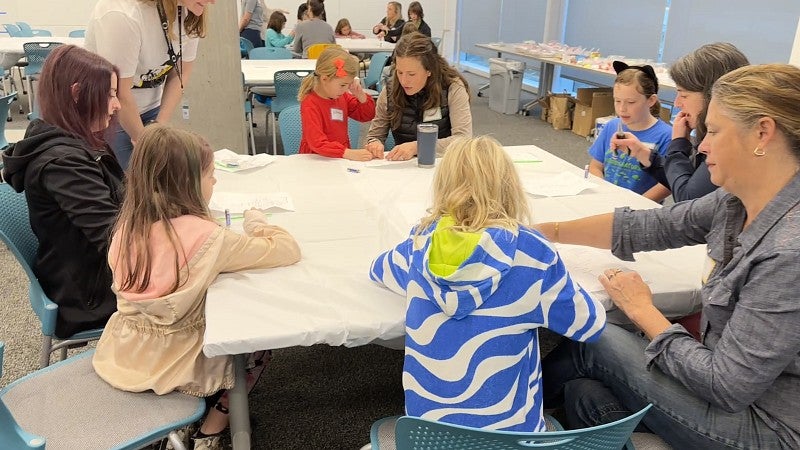Science outreach efforts aimed at inspiring young women and others from under-represented groups are commonplace, but such programs often reach young would-be scientists when it's too late says Tayler Hebner, a postdoctoral scholar in the Benoit Lab.

"Historically, girls tend to lose interest in STEM around middle school age. There are many contributing factors to this, such as lack of representation in the field and stereotypes that emphasize engineering as a male-dominated career," Hebner said. "Research shows that the more girls are engaged in STEM (Science, Technology, Engineering and Math), both at home and in school, and have opportunities to interact with female scientists and engineers from a young age, the more likely they are to see science and engineering as a career option for themselves."
To help address the issue, Hebner organized "Engineering Tomorrow's World: Girls Leading The Way," a science outreach event held at the Knight Campus on a Saturday, Nov. 3. The event drew 25 girls in grades 1-3 and their mothers or other female guardian/family members to learn about science and engineering through hands-on activities. Girls and their mothers engineered projects together through activities led by current graduate students and postdoctoral researchers in the Knight Campus Department of Bioengineering. For a portion of the event, girls worked on a project together with the event volunteers while their mothers/guardians participated in a panel discussion about ways to encourage and grow their daughters' interests in STEM through their later elementary and middle school years.
Funded by a grant from the UO Postdoctoral Association, the event was staffed by 10 female Knight Campus Bioengineering PhD students and postdocs. Hebner pointed to research showing that girls are more likely to pursue STEM careers when they have female mentors and role models to engage with from a young age.
"You could say that we 'flipped the stereotype' by filling the room with only female engineers to show them that this career path is for people like them, compared to when they get older and inevitably their STEM classmates and teachers will be predominantly male," Hebner said.
"We want to provide opportunities like this as early as possible and resources for them to continue engaging so that the door to a STEM career opens for them and it never closes."

